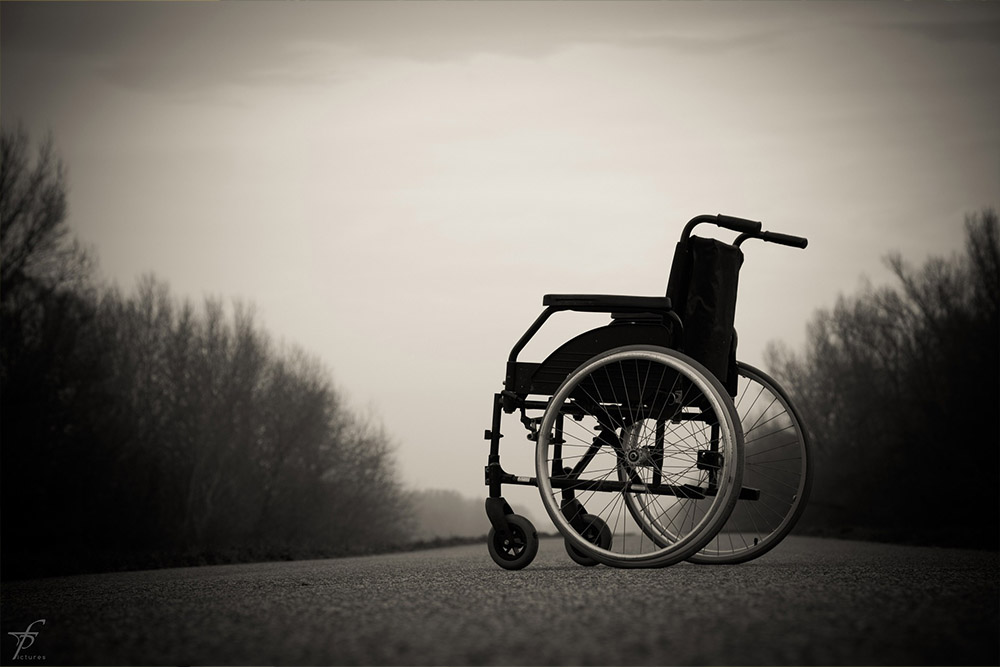
Study: Disabled, Pregnant Women at Much Greater Risk of IPV
The abuse began with seemingly small, hurled insults: If she weren’t disabled, their sex would be more varied and better.
2.5X
Women with disabilities are more than 2.5 times more likely to experience violence in the perinatal period
If she could do more around the house, he’d be happier.
Then came the threats. He’d take the children away. She should kill herself. He should kill her. “I can kill you right now,” he’d say, “and there’s nothing you can do about it.”
But the day her ex-husband switched her wheelchair to manual, slammed it into the front door, and, with her sobbing two-year-old daughter on her lap, shoved her out on the front deck and locked it, something switched in Sandy’s* head.
“Part of me feels angry that I should’ve left sooner. I was educated, I knew it was all wrong, but I truly felt that it was what I deserved for not being an able-bodied person who could’ve been a better wife to him. To this day, I still struggle with reminding myself that I am worthy.”
Sandy, mother of two and a social scientist, who has a neurodegenerative disease that confines her to a wheelchair
“It just kept escalating,” said Sandy (*not her real name). “At first, I did anything I could to get him to stay because I was afraid of not having anyone love me, was ashamed and embarrassed, and blamed myself a lot.”
It wasn’t until he lay unresponsive and intoxicated in their bedroom several weeks later, prompting a trip to the ER, that the marriage fully unraveled. He moved out, she petitioned for a divorce, and the judge awarded her full custody of the children, then ages one and two. Today, two decades later, Sandy—happily remarried and living near her two grown children—recalls the abuse with a mixture of fury and despair.
“Part of me,” she said, “feels angry that I should’ve left sooner. I was educated. I knew it was all wrong, but I truly felt that it was what I deserved for not being an able-bodied person who could’ve been a better wife to him. To this day, I still struggle with reminding myself that I am worthy.”
About twelve percent of American women of reproductive age—roughly one million Americans—live with at least one physical or cognitive disability like Sandy, who has a degenerative neuromuscular disease requiring her to use a wheelchair since her 20s. This understudied group of women, whom clinicians often assume are not sexually active and often lack access to reproductive and family planning care, is more likely to become pregnant unintentionally, 43 percent less likely to use oral contraceptives, and twice as likely as non-disabled women not to use any contraceptive method at all, nurse scientist Jeanne Alhusen has found. It’s also a population facing an epidemic of intimate partner violence.
1/3
Proportion of women with disabilities who reported that their pregnancies were the result of sexual violence
Alhusen’s latest study—based on responses from nearly 44,000 women who gave birth between 2018 and 2020 and published in the Journal of Advanced Nursing—found that women with disabilities were 2 ½ times more likely to experience violence in the year before and during pregnancy compared to their non-disabled peers. She also found that one-third of disabled women reported that their pregnancies resulted from sexual violence.
Alhusen and her co-authors say that care providers’ typical IPV screening questions don’t always capture the experiences of women with disabilities. They advocate clinicians ask more specific, probing questions: Has your partner prevented you from using a wheelchair, cane, respirator, or other device? Has your partner refused to help you with an important personal need, such as taking your medicine, getting to the bathroom, getting out of bed, bathing, getting dressed, or getting food or drink, or threatened not to help you with these personal needs? [pull quote]
Regardless of disability status, exposure to violence before, during, and after pregnancy can have grave consequences. Alhusen, whose research was among the first to identify the link between exposure to violence during pregnancy and infants’ low birth weight on a population-based level, has repeatedly affirmed that women who experience violence during pregnancy are more likely to be depressed, experience PTSD, and attempt or commit suicide. Their children are more likely to be born small, pre-term, to die at birth, and more likely to suffer from lifelong cognitive problems and physical delays.
The study “strongly [suggests] that perinatal IPV is a substantial problem for women with disabilities,” Alhusen and her co-authors said, “requiring attention by providers with disability-related knowledge and experience. Given the disparities shown . . . screening women with disabilities for IPV during the perinatal period is an important step toward preventing the occurrence of serious injury, additional disabling health conditions, or death.”

